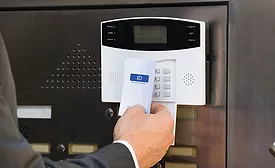Home » patient safety
Articles Tagged with ''patient safety''
Profile in Excellence
Training for healthcare security officers needs to be standardized to ensure staff and patient safety.
Read More
Sign-up to receive top management & result-driven techniques in the industry.
Join over 20,000+ industry leaders who receive our premium content.
SIGN UP TODAY!Copyright ©2026. All Rights Reserved BNP Media.
Design, CMS, Hosting & Web Development :: ePublishing









